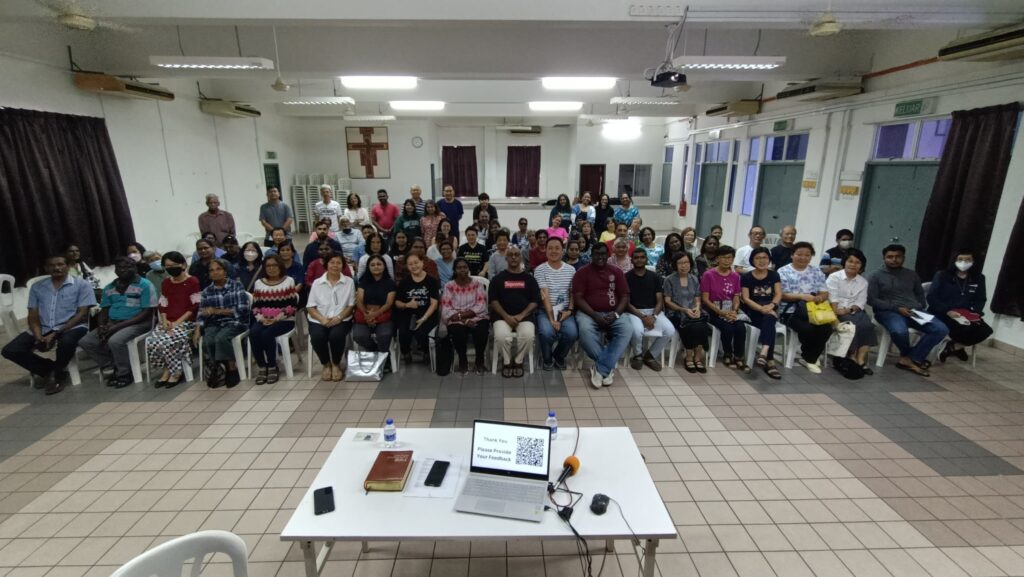Good Shepherd Church, Lenten Retreat
By Shohbana Vythy
The Church of the Good Shepherd organised a half-day Lenten retreat aimed at self-reflection during this penitential season. Approximately 80 participants, including youth and the elderly, attended the retreat held on March 16.
The retreat commenced with an hour of serene reflection, prayer, and adoration of the Blessed Sacrament in the church, setting the tone for the first session in the parish function hall.

Attendees were organised into groups during registration, fostering a sense of community. The retreat kicked off with an ice-breaking session, prompting participants to mingle and engage, allowing parishioners to forge connections beyond their encounters during Mass.
Once settled into their groups, participants were prompted with two questions to initiate reflection and discussion.
Initially, they contemplated the behaviours they wished to observe in others, leading to insightful exchanges.
Subsequently, the focus shifted to reflecting on the Gospel of Matthew 7:12, urging individuals to embody the values they expect from others.
After the initial reflection period, Fr Mitchel Joseph, the parish priest of the Church of the Good Shepherd, led subsequent sessions. Participants delved into the effects of doubt and fear on their spiritual journeys, prompted by uncertainties. Fr Mitchel emphasised the importance of addressing and resolving these emotions. This led to a discussion on the interplay between the conscious and unconscious mind, urging attendees to scrutinise their intentions and hidden motivations during Lenten practices.
Fr Mitchel also urged a balance between “doing” and “being,” drawing parallels with the biblical story of Martha and Mary (Luke 10:38-42), highlighting the necessity of spiritual growth alongside Lenten activities.
The session also explored the concept of temptation, tracing its roots to deception and a shift away from God-centredness towards self-centredness, echoing narratives like Eve’s temptation and Cain’s slaying of Abel.
Various psychological theories, including Freud’s Iceberg Theory, were introduced to encourage participants to transcend base instincts and selfish motives towards a more conscious existence. Automatic responses to challenges, such as fight, flee, or freeze, were examined for their impact on spiritual well-being.
Participants were prompted to reflect on childhood experiences shaping their personalities, using the model of the rebellious child, pleasing child, and wise child.
The session culminated with an overview of three levels of relationship, encapsulating the goal of the Lenten journey ? progressing from the primal and self-focused levels of instinct and self-ego, respectively to the pinnacle of a God-centred relationship.
Feedback from participants echoed a sentiment of enlightenment and gratitude, underscoring the retreat’s impact on their Lenten journey. Many expressed anticipation for future spiritual formations, recognising their value in providing guidance and fostering spiritual growth.